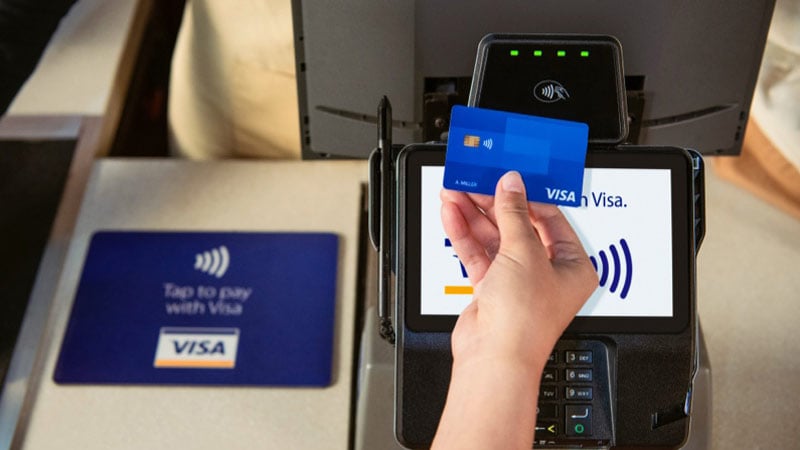We all want to find that one investment that can make us huge returns. In the past, Visa (V +3.73%) has done just that.
The world's dominant payments processing entity has produced a total return of 2,880% since its initial public offering (IPO) in 2008. This means that had you been able to make a $10,000 investment in this top financial stock back then, you'd be staring at $298,000 in your portfolio today.
Shares now trade in record territory. And the company's market cap is at $721 billion. But if you buy today, can Visa set you up for life?

Image source: Getty Images.
Visa's solid growth potential
It might be obvious, but finding a business that has tremendous growth potential, particularly over the long term, can lead to strong investment gains. That's not a shocker. To be clear, though, Visa doesn't fall into this category anymore.
But that doesn't mean it's done growing. In fact, Visa registers durable growth, which is propelled by favorable tailwinds.
The first growth driver is the ongoing war on cash, as consumers and businesses adopt digital and noncash transaction methodologies. While developed economies, like the U.S. and Canada, have less of an opportunity these days, emerging markets in Asia and Africa still have meaningful potential.
Ongoing economic growth, which fuels spending, also benefits Visa. In the past 10 years, core personal consumption expenditures in the U.S. increased by 101%. Assuming the global economy continues to expand and is much larger decades from now, it's safe to say that Visa will gain.
According to consensus analyst estimates, the company's revenue and earnings per share are expected to climb at compound annual rates of 10.2% and 12.6%, respectively, between fiscal 2024 and fiscal 2027. I think it's fair-minded to expect this type of pace in the years after as well.
Strong brand and network effect
Besides durable growth, another reason for why Visa should be on every investor's watch list is because the company possesses an economic moat. It has built up a key sustainable competitive advantage that supports long-term success.
Visa has an incredible network effect. There are 4.8 billion of its cards active across the world. And 150 million merchants worldwide accept these cards. Cardholders find tremendous value because of how widely accepted Visa is. And the same is true for merchants, as being plugged into the Visa network means they don't have to turn down customers and lose out on potential sales.
The network effect also underscores just how difficult it would be for Visa's market position to get disrupted. Over the past decade, numerous fintech enterprises have popped up, with a focus on improving the user experience to make payments even more seamless. You would think that this trend would have a negative impact.
However, Visa continues to grow its revenue, earnings, and reach. The payment platform is essential to the smooth functioning of the economy and the effortless movement of money between various stakeholders. This gives me confidence that Visa isn't going away anytime soon.

NYSE: V
Key Data Points
The right approach
Visa has produced monster returns since the IPO 17 years ago. And this is definitely an outstanding company that should be on the investing radar.
But I don't believe the stock will set you up for life. To put it another way, future returns will bear little resemblance to past returns. The S&P 500 index's total return is better than Visa's in the past five years.
And don't ignore valuation. The stock trades at a price-to-earnings ratio of 37.5. That's expensive, without a doubt. It reflects the market's appreciation for this business. I can still understand why investors might want to dollar-cost average into Visa shares. Just don't expect to generate life-changing wealth.





